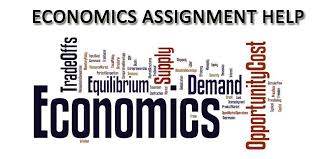
ECO. 361 (ONLINE QUIZ/ASSIGNMENT–SOME CRITICAL QUESTIONS IN DEVELOPMENT ECONOMICS–23/3/2025)
This is a follow up to the first online quiz. Elaborately explain the answers to the following questions:
1. What do we mean by “environmentally sustainable development”? Are there serious economic costs of pursuing sustainable development as opposed to simple output growth, and who bears the major responsibility for global environmental damage—the rich North or the poor South?
2. Are free markets and economic privatization the answer to development problems, or do governments in developing countries still have major roles to play in their economies?
3. Why do so many developing countries select such poor development policies, and what can be done to improve these choices?
4. Is expanded international trade desirable from the point of view of the development of poor nations? Who gains from trade, and how are the advantages distributed among nations?
5. When and under what conditions, if any, should governments in developing countries adopt a policy of foreign-exchange control, raise tariffs, or set quotas on the importation of certain “nonessential” goods in order to promote their own industrialization or to ameliorate chronic balance of payments problems?
6. What has been the impact of International Monetary Fund “stabilization programs” and World Bank “structural adjustment” lending on the balance of payments and growth prospects of heavily indebted less developed countries?
7. What is meant by globalization, and how is it affecting the developing countries?
8. Should exports of primary products such as agricultural commodities be promoted, or should all developing countries attempt to industrialize by developing their own manufacturing industries as rapidly as possible?
9. How did so many developing nations get into such serious foreign-debt problems, and what are the implications of debt problems for economic development? How do financial crises affect development?
10. What is the impact of foreign economic aid from rich countries? Should developing countries continue to seek such aid, and if so, under what conditions and for what purposes? Should developed countries continue to offer such aid, and if so, under what conditions and for what purposes?
11. Should multinational corporations be encouraged to invest in the economies of poor nations, and if so, under what conditions? How have the emergence of the “global factory” and the globalization of trade and finance influenced international economic relations?
12. What is the role of financial and fiscal policy in promoting development? Do large military expenditures stimulate or retard economic growth?
13. What is microfinance, and what are its potential and limitations for reducing poverty and spurring grassroots development?





